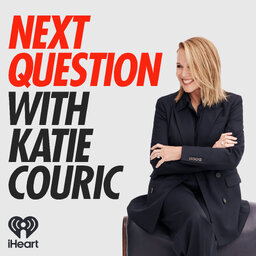When trauma is shared: How to heal together
It has been a brutal year. Not only for the loss, heartache and isolation the pandemic has brought, but also the relentless and senseless violence, the mass shootings, and systemic racism at play all over America. Even as Derek Chauvin was found guilty on all accounts, on April 21, 2021, of murdering George Floyd in Minneapolis last May, a 16-year-old girl in Ohio was killed by police. “It’s a trauma,” President Biden said of all that had to occur to deliver the guilty verdict and such basic accountability. Which is why, this episode of Next Question with Katie Couric is dedicated to acknowledging the individual traumas and shared trauma of this year and learning how we can begin to heal.
We’ll hear from three healing practitioners: Dr. James Gordon of the Center for Mind-Body Medicine and author of “Transforming Trauma: The Path to Hope and Healing,” Trina Greene Brown of the non-profit organization Parenting for Liberation, and Lisa Woolfork of Black Women Stitch and the Stitch, Please podcast. Learn practical tools for coming into balance, how to parent through racism, and how to claim your own space and center yourself and your soul.
Learn more about your ad-choices at https://www.iheartpodcastnetwork.com
 Next Question with Katie Couric
Next Question with Katie Couric


